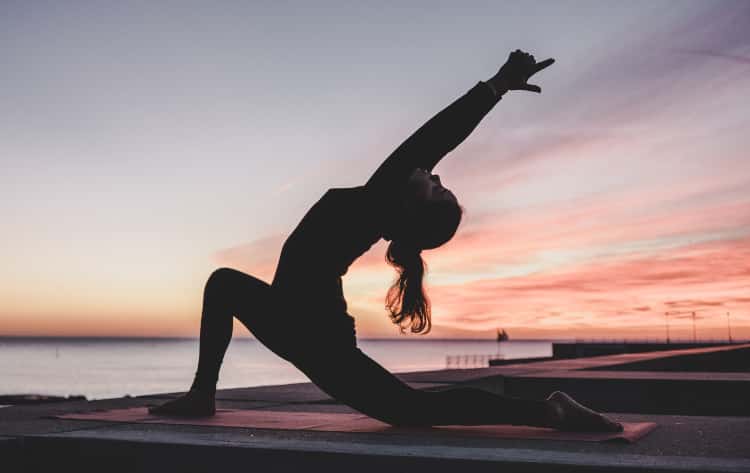A lot of addiction treatment centers are good at getting people sober, but when these recovering addicts are reintroduced into the wild, they end up relapsing and sometimes wind up worse off than when they started. A lot of times, people with substance abuse issues never learned how to live a normal, healthy life. Many of them began using drugs and alcohol in their adolescent or teenage years and have never had to survive in the world without the crutch of a mood-altering substance.
Sure, these people can get physically sober and even thrive in a treatment setting, but when left up to their own devices, they simply don’t know what to do with themselves without using drugs or alcohol. That’s where the Four Pillars of Recovery come in. At Healthy Life Recovery, we have found incredible success in helping relapse-prone addicts because we teach them how to live a satisfying life without relying on drugs and alcohol. One of the most important pillars in our recovery program is exercise.
Drug and Alcohol addiction takes a toll on the body. When people who have developed a physical dependency on a mood-altering substance quit, there is a void that is created both in their lives and in their brain chemistry. Once the addictive substance has been removed from the equation, the addicted person will not only have a surplus of free time on their hands but a host of negative mental side-effects as well.

Exercise is a Stress Reliever
People in recovery can feel depressed, anxious and stressed out. In the past, these people would fall back to their drug of choice as a cure-all for these issues. As their go-to coping mechanism, drug and alcohol use was their way of numbing out these feelings and finding solace in a hectic world. As they begin to recover from addiction, these individuals will begin to heal mentally and develop new skills to deal with life on life’s terms. That means finding new ways to relieve stress and work through depressive episodes.
Exercise is a great natural stress reliever. Exercise increases your brain’s production of endorphins, these neurotransmitters create a euphoric, “good feeling” that is sometimes referred to as a “runner’s high”. Addicts go to great lengths to get the drugs necessary to recreate this naturally occurring feeling. But unlike a drug high, this feeling doesn’t have a harsh comedown or intense feelings of shame and guilt attached to it. Quite the opposite, in fact, exercising will actually boost the person in recovery’s self-esteem and give them the satisfaction of knowing that they earned this good feeling through sweat and perseverance.
The simple act of doing something physical to make yourself feel better sets a precedent for the person in recovery. It shows them that they are in control of their bodies and their emotions and that they have alternative courses of action to pursue besides drugs and alcohol to cope with frustrations and make themselves feel better.

Sleep is Essential to Addiction Recovery
Exercise also helps people sleep better. Having trouble sleeping is a common problem for people in early recovery. Whether they are living in an inpatient facility, at a sober living, or back at home, a bad night’s sleep can ruin their day. Most people with substance abuse issues end up using before they go to sleep. Whether they are passing out from drinking to the point of unconsciousness or using so that they can get comfortable enough to turn their brain off, addicts and alcoholics are not used to going to bed sober. A night of tossing and turning can lead to unnecessarily high levels of stress and agitation.
When someone hasn’t slept well, every daily task seems like a chore. They have little patience for dealing with the inconveniences that will inevitably pop up during the day and have a lower tolerance for stress. This can lead to unpleasant interactions and altercations that can cause an addict to get frustrated and go back to their drug of choice for relief. Exercise can burn off this stress, leaving the person in recovery tired and ready to fall asleep faster.
Regular exercise also improves the quality of sleep that the addict or alcoholic gets. People who exercise see an increase in “Slow-wave sleep” this is a form of deep sleep that allows the mind and body to recover more effectively. This will help a person get the most out of their sleep, even if they are unable to get a full eight hours.

Exercise and Mindfulness
Exercising can be a form of physical meditation. When most people think of mediation they think of sitting perfectly still and counting their breaths. Therefore, it may seem counter-intuitive to think that exercising can be a form of mediation. But concentrating on your body’s movements and breathing deeply can quiet the mind and bring a person’s focus into the present in an amazing way.
When someone is running or swimming laps in a pool they typically aren’t thinking about past harms that were done to them or worrying about their future. They are often just focusing on their movements and breathing. This type of mindful movement clears a person’s mind and allows them to focus on a single task. This type of focus on a simple, physical task provides the person in recovery with a sense of accomplishment and a peace of mind that is refreshing for people that have struggled with relapse. When the world seems unwieldy and life seems impossible to manage, this sense of satisfaction can do wonders to stop the cycle of negative thoughts and emotions.
Healthy Body, Healthy Mind
The benefit of exercise in the treatment of addiction has been widely reported and proven through multiple research studies. It can help reduce the symptoms of depression, anxiety, stress, and sleeplessness that plague addicts and alcoholics in early recovery. It can also help build camaraderie and provide structure to people in recovery who struggle to fill their days with healthy habits.
While exercise is not the only technique that should be utilized to combat substance abuse, in conjunction with nutrition, education and a supportive, sober community it can be the turning point on the battle against addiction. The four pillars to everlasting sobriety were developed to help relapse prone addicts and alcoholics find a way to live a healthy life free from addiction.
Get help today at Healthy Life Recovery.
Call Now
We're Here To Help!
Location
4747 Mission Blvd, Suite #6
San Diego, CA 92109






